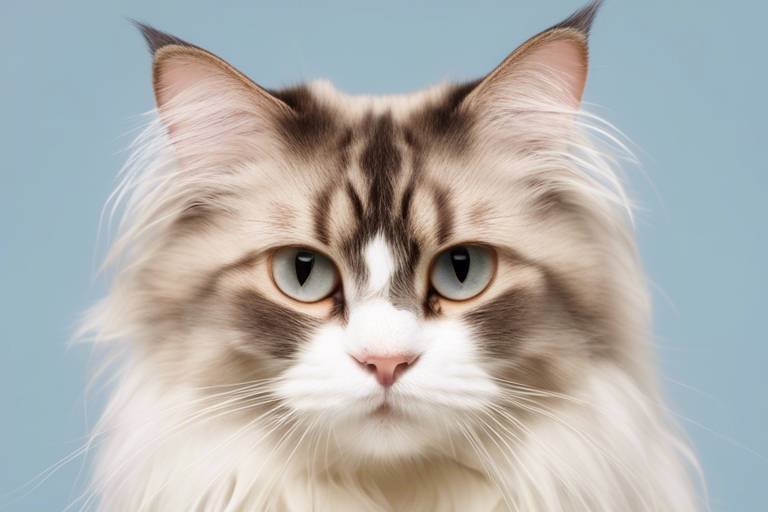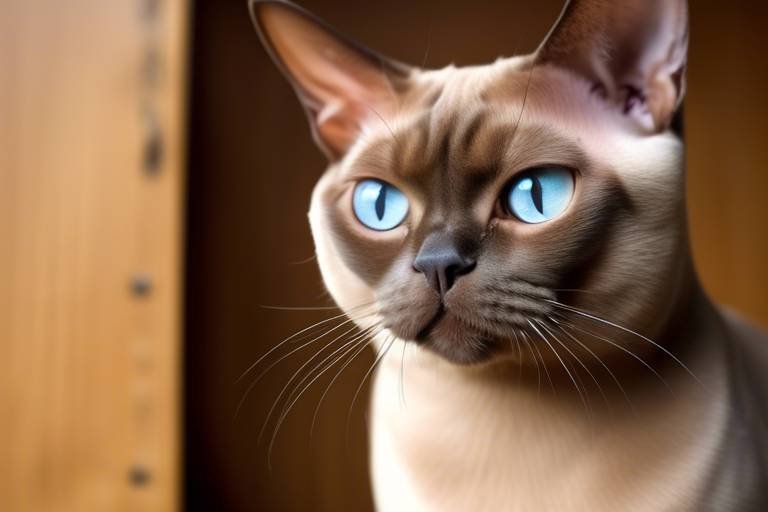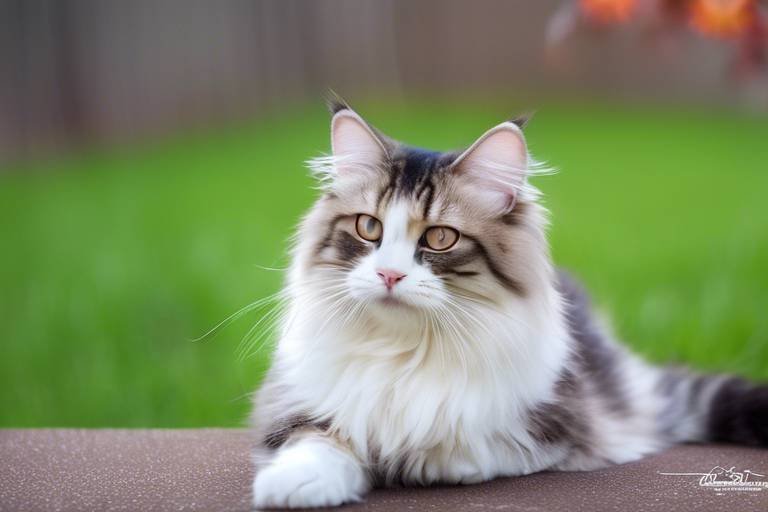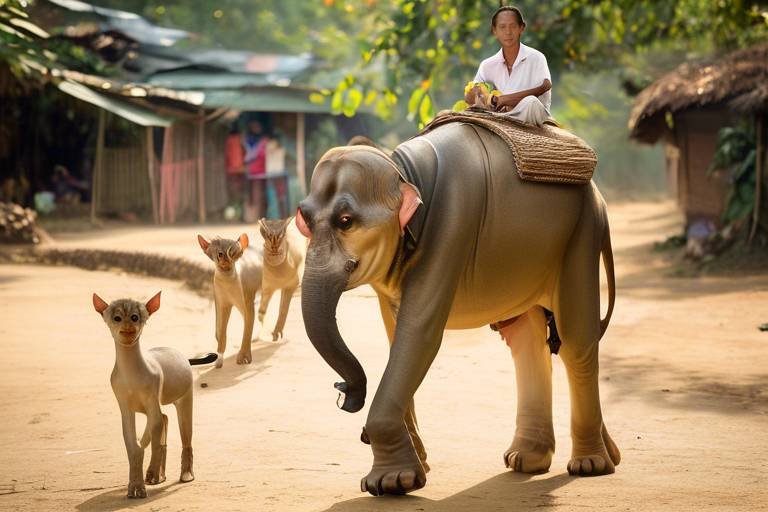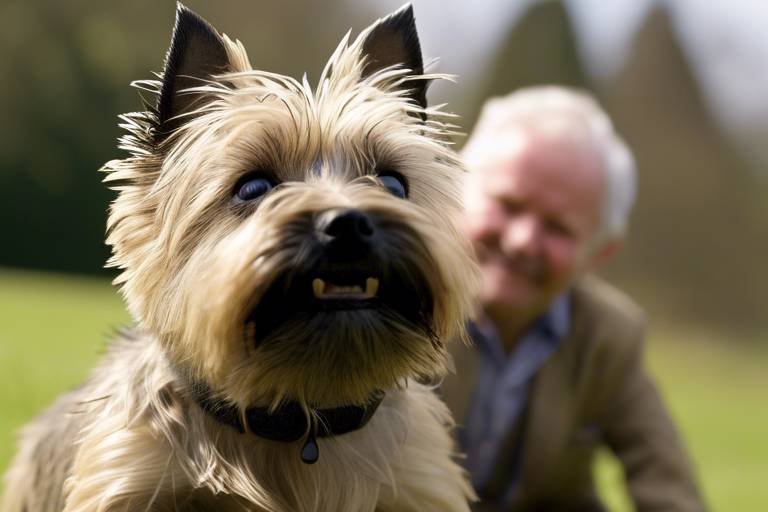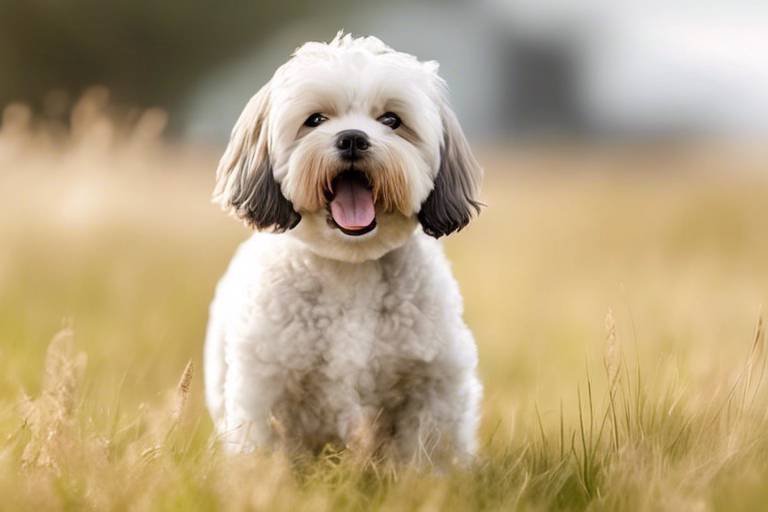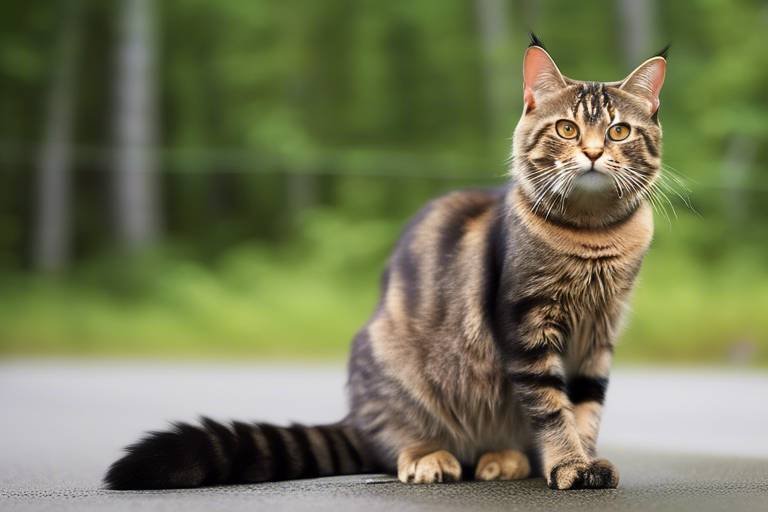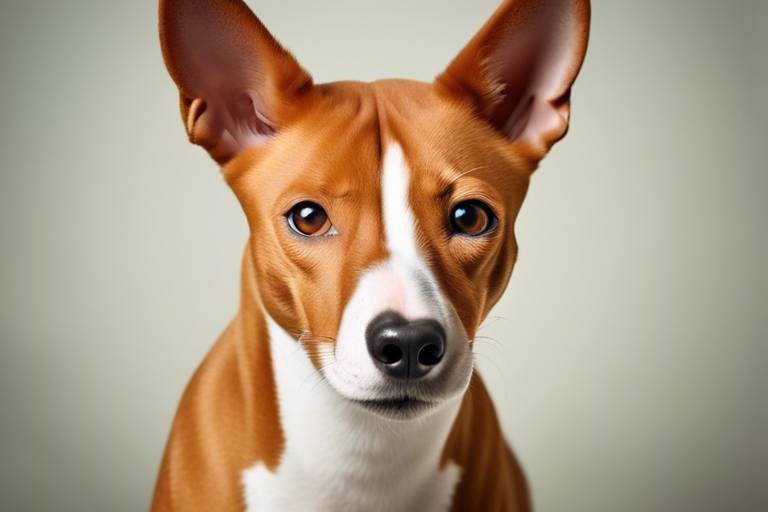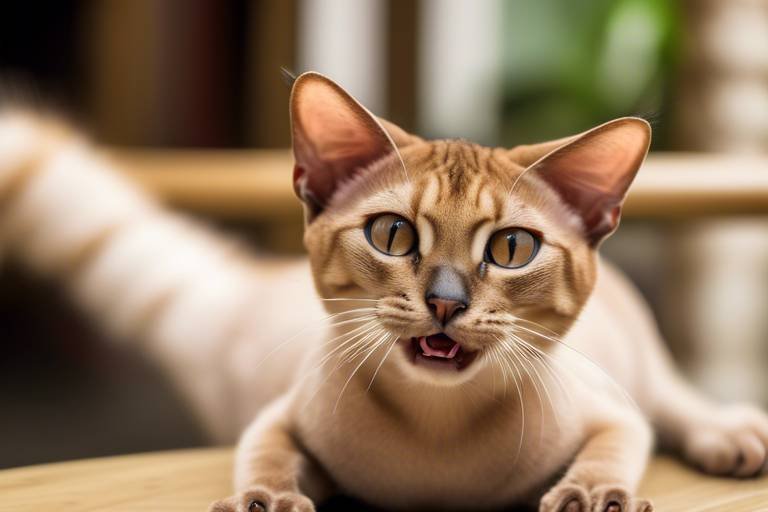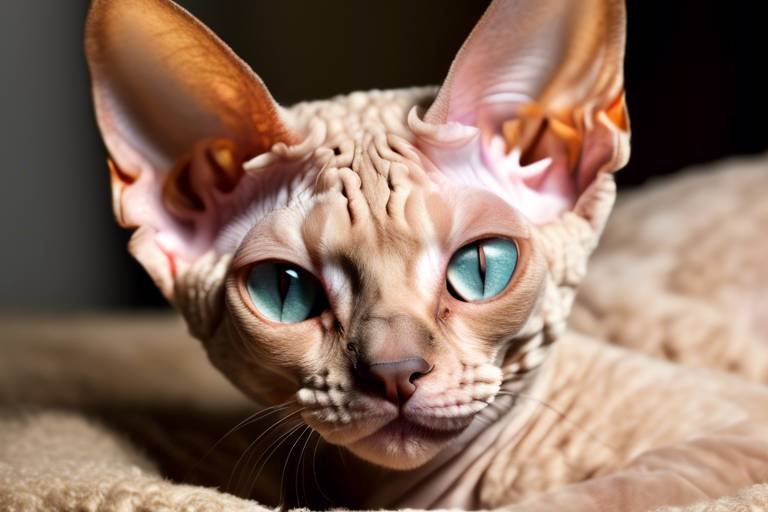Understanding the Characteristics of the Munchkin Cat
The Munchkin cat breed has taken the feline world by storm, captivating the hearts of cat lovers everywhere with their unique appearance and charming personalities. With their short legs and playful demeanor, Munchkins are not just another breed; they are a delightful twist on the classic cat. Their distinctive look can be attributed to a natural genetic mutation that affects their leg length, giving them an adorable, almost cartoonish appearance. But don’t let their short stature fool you – these cats are full of energy and personality! As we dive deeper into the characteristics of Munchkin cats, you’ll discover what makes them such special companions, from their physical traits to their lively spirits.
Munchkin cats are easily recognizable due to their short legs and sleek bodies. Their unique stature is not just about being cute; it also contributes to their agility and playful nature. Munchkins come in various coat types, including long-haired and short-haired varieties, allowing for a range of textures and appearances. The colors of their coats can vary widely, from classic tabby patterns to solid colors and even exotic combinations. Regardless of their coat type or color, one thing is for sure: Munchkin cats have a charm that is hard to resist. Their large, expressive eyes and playful expressions add to their overall appeal, making them a favorite among cat enthusiasts.
Known for their playful and affectionate nature, Munchkin cats exhibit a variety of personality traits that make them ideal companions. They are often described as sociable and curious, always eager to engage with their humans and explore their surroundings. Munchkins thrive on interaction, whether it’s with their owners or other pets in the household. Their friendly demeanor means they typically get along well with children and other animals, making them a perfect addition to any family. But what really sets Munchkins apart is their playful spirit. They have a knack for turning even the most mundane moments into an adventure, keeping their families entertained and engaged.
Munchkin cats are renowned for their playful demeanor. They love to chase after toys, pounce on feather wands, and engage in games of hide and seek. Their playful antics can be a source of endless amusement, and they often exhibit behaviors that remind us of kittens, regardless of their age. It’s not uncommon to find a Munchkin perched on a high shelf, surveying their kingdom, or darting around the house in a playful frenzy. Their enthusiasm for play is contagious, and they thrive in environments where they can explore and be active. Providing them with a variety of toys and playtime will not only keep them entertained but also strengthen the bond between you and your furry friend.
Their sociable nature makes Munchkin cats great companions. They are known to form strong bonds with their owners and often follow them around the house, eager to be involved in whatever activity is happening. Munchkins are not the type to shy away from social gatherings; they often enjoy meeting new people and can be quite the social butterflies. Their friendly and outgoing personalities mean they usually get along well with other pets too, making them a versatile choice for multi-pet households. They thrive on companionship, so having another pet around can be beneficial for their happiness.
Munchkin cats are not only playful but also intelligent. They are quick learners and can be taught a variety of tricks and commands. Their curiosity drives them to explore and investigate their surroundings, making them keen observers of the world around them. This intelligence means they require mental stimulation, so engaging them with interactive toys and puzzle feeders can be a great way to keep their minds sharp. Plus, their ability to learn tricks can add an element of fun to your daily interactions, showcasing their mental agility and willingness to please.
Proper care is essential for the well-being of Munchkin cats. Regular grooming is important, especially for long-haired varieties, to prevent matting and to keep their coats healthy. Additionally, providing a balanced diet tailored to their specific needs is crucial for maintaining their energy levels and overall health. Like any pet, Munchkins require routine veterinary care, including vaccinations and dental check-ups, to ensure they remain healthy and happy throughout their lives. By staying informed about their care requirements, you can help your Munchkin thrive in a loving home.
Like all breeds, Munchkin cats have specific health issues to be aware of. Some common concerns include spinal issues and heart conditions. It’s important to choose a reputable breeder who conducts health screenings to minimize the risk of genetic problems. Regular veterinary check-ups are crucial for monitoring their health and catching any potential issues early. By being proactive about their health care, you can help ensure your Munchkin lives a long and fulfilling life.
Munchkin cats may be prone to certain genetic conditions. These can include issues like lordosis, which affects the spine, and hypertrophic cardiomyopathy, a common heart condition in cats. Understanding these potential health risks can help you make informed decisions about your Munchkin’s care. Responsible breeding practices are essential to mitigate these risks, so always ask about health tests and genetic screenings when considering adding a Munchkin to your family.
Routine veterinary care is crucial for Munchkin cats. Regular check-ups can help catch any health issues early, and keeping up with vaccinations and flea prevention is vital for their well-being. Additionally, dental care should not be overlooked; dental disease is common in cats and can lead to more serious health issues if left untreated. By prioritizing your Munchkin's health care, you can ensure they enjoy a long, healthy life filled with joy and companionship.
- Are Munchkin cats good with children? Yes, Munchkin cats are known for their friendly and playful nature, making them great companions for children.
- Do Munchkin cats have special grooming needs? While short-haired Munchkins require less grooming, long-haired varieties need regular brushing to prevent matting.
- How long do Munchkin cats typically live? With proper care, Munchkin cats can live between 12 to 15 years or more.
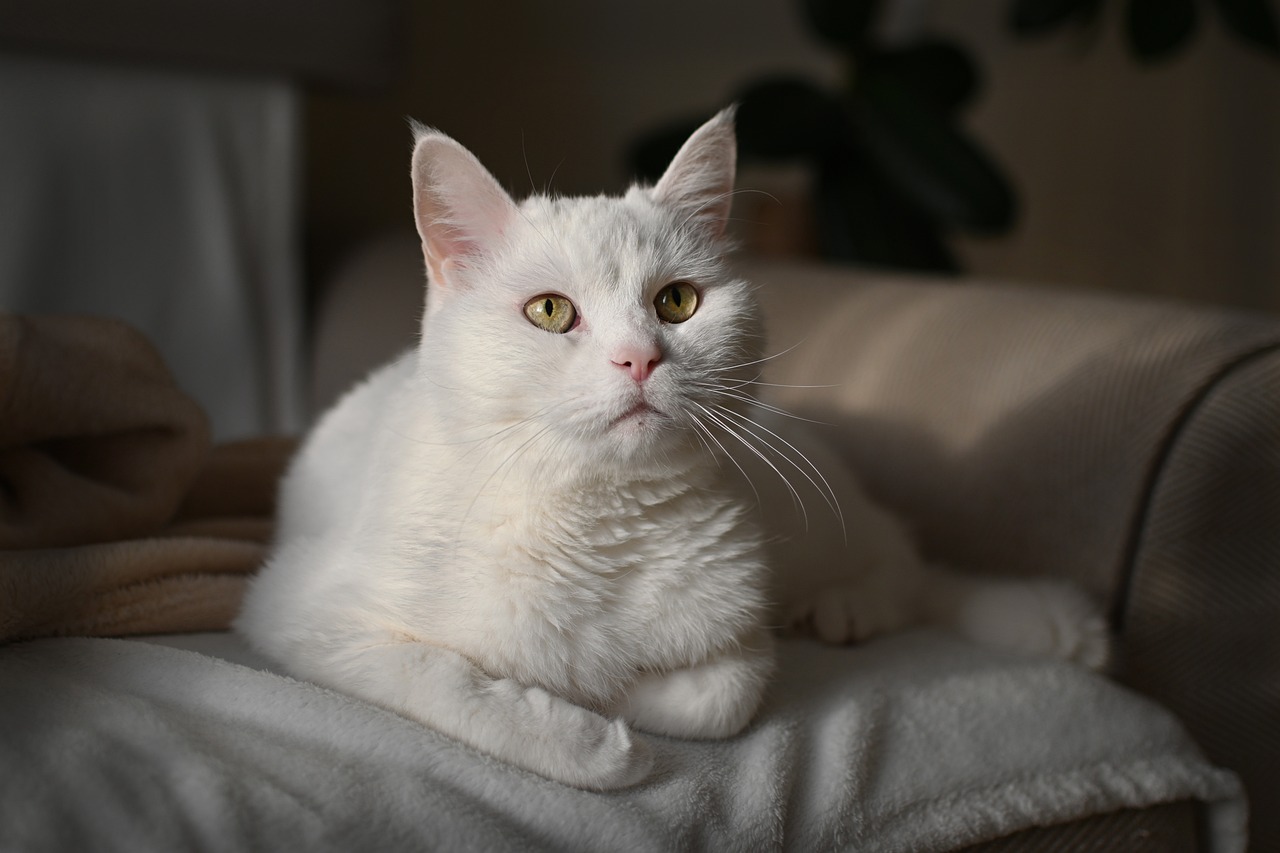
Physical Appearance
Munchkin cats are truly a sight to behold, standing out in the feline world with their short legs and sleek bodies. These adorable little furballs have a unique charm that captivates cat lovers everywhere. Their short stature, a result of a natural genetic mutation, gives them a distinctive appearance that is both endearing and amusing. Imagine a cat that looks like it's perpetually ready to pounce but is just a little closer to the ground! This fascinating trait makes them instantly recognizable and often the topic of conversation among pet enthusiasts.
When it comes to their coat types and colors, Munchkin cats are just as varied as any other breed. They can sport a multitude of colors and patterns, from classic tabby to solid hues, and even striking calico. Their coats can be either long-haired or short-haired, providing options for those who have preferences for grooming and maintenance. The long-haired Munchkin, with its flowing fur, resembles a regal feline, while the short-haired version flaunts a sleek and shiny coat that is easy to maintain.
In terms of overall structure, Munchkin cats have a well-proportioned body that is muscular yet compact. Their round faces and large, expressive eyes give them a perpetually curious and playful look. These features are not just for show; they contribute to their playful personality and loving demeanor. Their ears are medium-sized and slightly rounded at the tips, adding to their overall adorable appearance. It’s not uncommon to see a Munchkin cat prancing around with a sense of confidence, as if they know just how cute they really are!
To give you a clearer picture, here's a quick overview of some of the key physical traits of Munchkin cats:
| Characteristic | Description |
|---|---|
| Leg Length | Short legs, typically 1-3 inches shorter than average cats |
| Body Type | Compact, muscular, and well-proportioned |
| Coat Length | Available in both long-haired and short-haired varieties |
| Eye Shape | Large and round, often with a curious expression |
| Ear Shape | Medium-sized with rounded tips |
In summary, the Munchkin cat's physical appearance is a delightful blend of charm and uniqueness. Their short legs, combined with various coat types and colors, make them a visually appealing breed. Whether you’re drawn to their playful antics or their striking looks, Munchkin cats are sure to steal your heart!
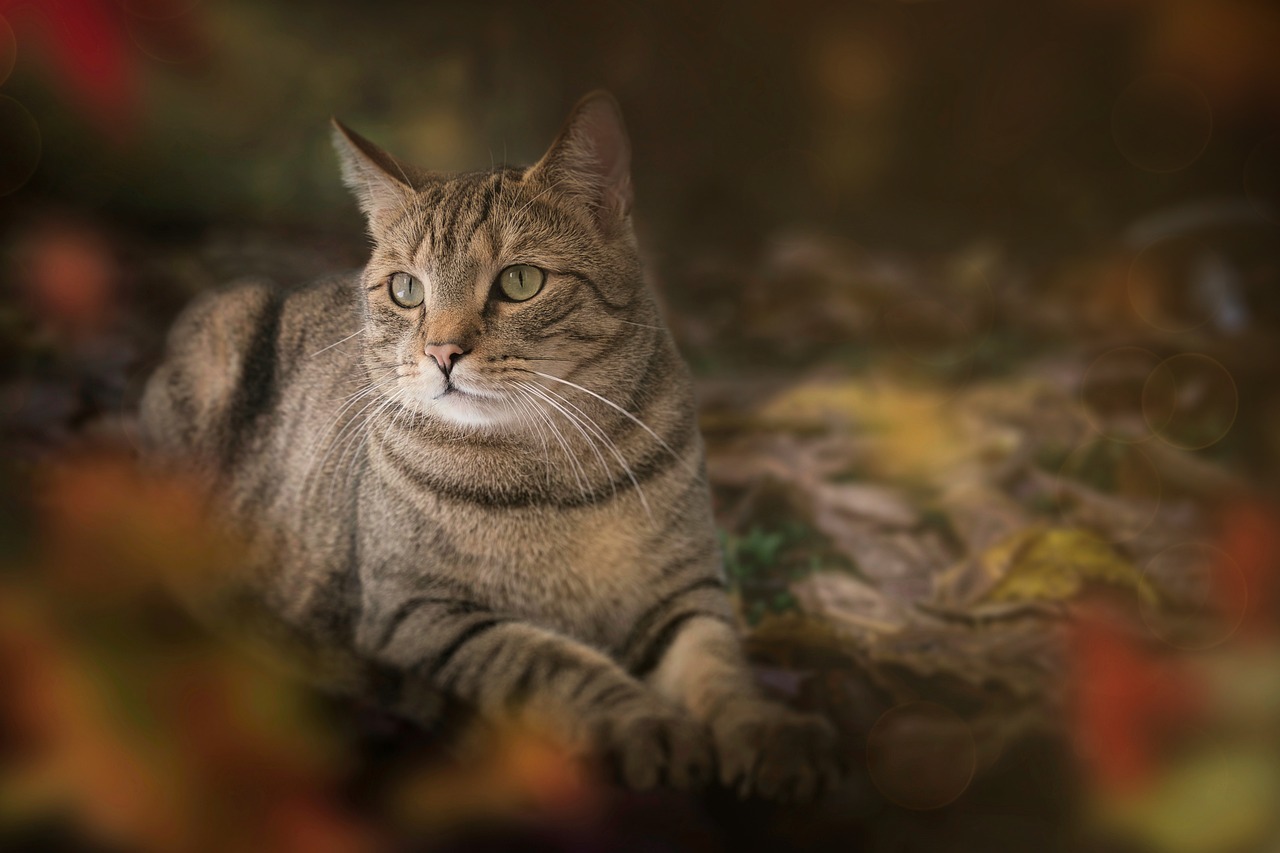
Temperament and Personality
Munchkin cats are not just a pretty face with their adorable short legs; they are a bundle of joy wrapped in fur! Known for their playful and affectionate nature, these little felines are sure to steal your heart. Their personality traits make them unique companions that can brighten any home. Imagine a tiny cat with a big personality, ready to engage in games or curl up on your lap for some quality cuddle time. That’s the Munchkin cat for you!
One of the standout features of Munchkin cats is their playfulness. They have an innate love for games, whether it’s chasing after a feather toy or pouncing on a ball of yarn. Their energy levels are often described as contagious, making them delightful companions for families, especially those with children. When you have a Munchkin around, boredom is simply not an option! Their playful demeanor can turn a mundane afternoon into a lively play session, complete with leaps and bounds that defy their short stature.
Munchkin cats thrive on interaction, and their playful nature encourages them to explore and engage with their environment. They are known to be quite curious, often investigating every nook and cranny of their home. It’s not uncommon to find them perched on a windowsill, watching birds or insects with wide-eyed wonder. This curiosity can lead to amusing antics that will keep you entertained for hours. Whether it’s a simple game of hide-and-seek or a more complex puzzle toy, Munchkins are always up for a challenge!
Another remarkable aspect of Munchkin cats is their sociable nature. They are known to form strong bonds with their owners and are typically friendly towards other pets. Their outgoing personalities mean they often seek attention and love from everyone in the household. Imagine coming home after a long day and being greeted by a tiny, fluffy ball of energy, ready to shower you with affection! Munchkins are often described as people-oriented, thriving on companionship and interaction. They are not the type to shy away from a good snuggle or a playful chase with a fellow furry friend.
But wait, there’s more! Munchkin cats are not just playful and social; they are also quite intelligent. Their curiosity extends beyond just their surroundings; they are keen learners and can pick up tricks and commands with ease. This mental agility makes them not only fun to play with but also a joy to train. Imagine teaching your Munchkin to fetch or even perform little tricks like rolling over—it's not just possible; it’s a delightful experience! Their intelligence means they require mental stimulation, so providing them with interactive toys and engaging activities is essential to keep their minds sharp.
In summary, Munchkin cats are a delightful mix of playfulness, affection, and intelligence. Their unique personality traits make them wonderful companions for anyone looking to add a little joy to their lives. Whether you’re playing with them, training them, or simply enjoying their company, Munchkins are sure to bring a smile to your face and warmth to your heart.
- Are Munchkin cats good with children? Yes, Munchkin cats are known for their friendly and playful nature, making them great companions for children.
- Do Munchkin cats require special care? While they don’t require special care beyond regular grooming and veterinary check-ups, their playful nature means they need plenty of toys and interaction.
- Can Munchkin cats be left alone for long periods? It's best to avoid leaving them alone for extended periods, as they thrive on social interaction.
Playfulness
Munchkin cats are renowned for their playful demeanor, which is one of the most endearing traits of this unique breed. Imagine a tiny ball of fur, zipping around your living room, chasing after a feather toy or pouncing on a crumpled piece of paper. Their short legs don't hold them back; if anything, they add an adorable twist to their antics. These little furballs are full of energy and curiosity, always on the lookout for the next adventure or game. Whether it's a simple game of hide-and-seek or an elaborate obstacle course you’ve set up, Munchkins are always ready to join in the fun.
What’s fascinating about Munchkin cats is their ability to keep themselves entertained. They have a knack for turning everyday objects into toys. A cardboard box can become a fort, and a string can transform into a mesmerizing snake that needs to be caught. Their playful nature not only provides them with exercise but also keeps their minds sharp. Engaging them in play is essential, as it fosters a strong bond between the cat and its owner, creating moments of joy and laughter.
To enhance their playtime experience, consider investing in a variety of toys. Here are some popular options that Munchkin cats tend to love:
- Interactive toys: Toys that respond to their actions, like laser pointers or battery-operated mice, can keep them engaged for hours.
- Feather wands: These are perfect for mimicking the chase of a bird, tapping into their hunting instincts.
- Catnip-filled toys: Many cats go wild for catnip, and these toys can provide a delightful sensory experience.
In addition to toys, Munchkin cats enjoy social play. If you have other pets, you might find that they engage in playful wrestling or chase games. Their sociable nature means they thrive on interaction, both with humans and fellow animals. This aspect of their personality makes them particularly suitable for families, as they are likely to entertain children and adults alike.
Ultimately, the playful spirit of Munchkin cats is a testament to their vibrant personalities. They remind us that life is meant to be enjoyed and that even the simplest things can bring immense joy. So, if you're considering bringing a Munchkin into your home, be prepared for a delightful journey filled with laughter, love, and playful antics that will warm your heart.
Here are some common questions about the playful nature of Munchkin cats:
- Do Munchkin cats require a lot of playtime? Yes, they thrive on play and interaction, so daily play sessions are essential for their happiness.
- Can they play with other pets? Absolutely! Munchkin cats are social and often enjoy playing with other cats or even dogs.
- What toys are best for Munchkin cats? Toys that stimulate their hunting instincts, such as feather wands and interactive toys, are ideal.
Social Interactions
Munchkin cats are not just adorable with their short legs and charming personalities; they are also incredibly sociable. These little furballs thrive on interaction, making them wonderful companions for families and individuals alike. If you've ever wondered how a cat can be both independent and affectionate at the same time, the Munchkin is a perfect example. Their innate curiosity and playful nature lead them to seek out human companionship and engage with their surroundings.
One of the most fascinating aspects of Munchkin cats is their ability to form strong bonds with their owners. They are known to follow their humans around the house, often appearing to be little shadows. This behavior not only demonstrates their attachment but also their desire to be involved in whatever you are doing. Whether you are cooking in the kitchen or lounging on the couch, expect your Munchkin to be right there, ready to join the fun.
Additionally, Munchkin cats have a unique way of interacting with other pets. They are generally friendly and can get along well with dogs and other cats. Their playful demeanor can often encourage even the shyest of pets to come out of their shells. If you have other animals at home, introducing a Munchkin cat can sometimes lead to delightful and lively play sessions. Their playful antics can lighten up the mood in any household, creating a joyful and engaging environment.
When it comes to social interactions, Munchkin cats are also quite intelligent. They can learn to recognize commands and even perform tricks, which can enhance their interactions with both humans and other pets. This intelligence, combined with their affectionate nature, makes them eager to please their owners, often resulting in a rewarding relationship filled with love and laughter.
In summary, if you are considering adding a Munchkin cat to your home, be prepared for a furry friend that not only seeks your attention but also brings a sense of joy and companionship. Their social nature ensures that they will be an integral part of your family life, whether it's through playful moments or quiet cuddles on the couch.
- Are Munchkin cats good with children? Yes, Munchkin cats are generally very friendly and tolerant, making them great companions for children.
- Do Munchkin cats require special care? While they don’t require special care due to their short legs, regular grooming and veterinary check-ups are essential for their overall health.
- Can Munchkin cats live with other pets? Absolutely! Munchkin cats are sociable and usually get along well with other pets, including dogs.
- How long do Munchkin cats typically live? With proper care, Munchkin cats can live between 12 to 15 years, similar to other domestic cats.
Intelligence
Munchkin cats are not just adorable with their short legs and charming personalities; they are also remarkably intelligent. This breed has a natural curiosity that drives them to explore their surroundings, making them quite the little adventurers. You might find them investigating every nook and cranny in your home, as their inquisitive nature compels them to understand their environment. Their intelligence allows them to learn new tricks and commands, often surprising their owners with what they can accomplish. Just like a child who can't wait to show off their new skills, Munchkin cats thrive on learning and interaction.
One of the most enjoyable aspects of owning a Munchkin cat is their ability to engage in interactive play. They are known to pick up on games quickly, whether it's chasing after a laser pointer or playing fetch with a small ball. Their quick learning ability means that you can teach them a variety of tricks, from simple commands like "sit" to more complex tasks. This not only keeps them mentally stimulated but also strengthens the bond between you and your furry friend.
To further illustrate their intelligence, consider the following traits that make Munchkin cats stand out:
- Problem Solving: Munchkin cats often exhibit clever problem-solving skills. If they encounter a barrier, they will find a way around it rather than simply giving up.
- Memory: These cats have excellent memory retention. They can remember where their favorite toys are hidden and even recognize routines, such as feeding times.
- Social Learning: Munchkins learn not just from their owners but also from observing other pets. This social learning helps them adapt and thrive in multi-pet households.
In essence, Munchkin cats are a delightful blend of playfulness and intelligence. Their ability to learn and adapt makes them fantastic companions, and their curious nature ensures that life with them is never dull. If you’re considering adding a Munchkin to your family, be prepared for a kitty that will keep you on your toes, challenge your mind, and fill your heart with joy.
Q: Are Munchkin cats easy to train?
A: Yes! Munchkin cats are quite trainable due to their intelligence and eagerness to please. With patience and positive reinforcement, they can learn various tricks and commands.
Q: Do Munchkin cats require special care due to their unique body structure?
A: While Munchkin cats do have shorter legs, they do not require special care beyond what is typical for any cat. Regular vet check-ups and a healthy diet are essential for their overall well-being.
Q: Can Munchkin cats get along with other pets?
A: Absolutely! Munchkin cats are known for their sociable nature and often get along well with other cats and even dogs, especially if they are introduced properly.
Care and Maintenance
Taking care of a Munchkin cat is as rewarding as it is essential for their overall well-being. These charming little furballs may have short legs, but they have big personalities and even bigger needs when it comes to care. First and foremost, grooming plays a pivotal role in their maintenance. Depending on the coat type—whether it's short or long—regular brushing is necessary to prevent matting and reduce shedding. For long-haired Munchkins, a thorough brushing at least twice a week is recommended, while short-haired ones can get by with a weekly grooming session. This not only keeps their fur looking fabulous but also allows you to check for any skin issues or parasites.
Another crucial aspect of Munchkin care is their diet. Like any feline, Munchkins require a balanced diet rich in proteins and essential nutrients. It's wise to choose high-quality cat food that lists meat as the primary ingredient. Additionally, you should consult with your veterinarian to determine the right portion sizes and whether any specific dietary supplements are necessary. Remember, obesity can be a concern for Munchkin cats due to their limited mobility, so keeping an eye on their weight is vital.
Exercise is also important for these playful cats. Munchkins love to play, so providing them with a variety of toys—like feather wands, laser pointers, and interactive puzzles—can help keep them active and mentally stimulated. Regular playtime not only strengthens your bond but also helps to prevent boredom, which can lead to destructive behavior. Creating a stimulating environment with climbing structures and scratching posts will encourage them to explore and stay fit.
Moreover, regular veterinary check-ups are essential for Munchkin cats. These visits allow your vet to monitor their health, administer vaccinations, and catch any potential health issues early on. Munchkins can be prone to certain genetic conditions, so staying proactive about their health is key. Routine dental care should not be overlooked, as dental disease can lead to more serious health problems. Brushing their teeth regularly and providing dental treats can help maintain their oral hygiene.
In summary, caring for a Munchkin cat involves a combination of grooming, proper diet, exercise, and regular veterinary care. By paying attention to these essential aspects, you can ensure that your Munchkin thrives in a loving and healthy environment. After all, a happy Munchkin means a happy home!
- How often should I groom my Munchkin cat? - Grooming frequency depends on the coat type; short-haired Munchkins need weekly grooming, while long-haired ones should be brushed at least twice a week.
- What type of food is best for Munchkin cats? - A high-quality cat food with meat as the primary ingredient is recommended for a balanced diet.
- Do Munchkin cats require special exercise? - Yes, they enjoy playtime and need interactive toys to keep them active and mentally stimulated.
- Are Munchkin cats prone to health issues? - They can be susceptible to certain genetic conditions, making regular veterinary check-ups essential.
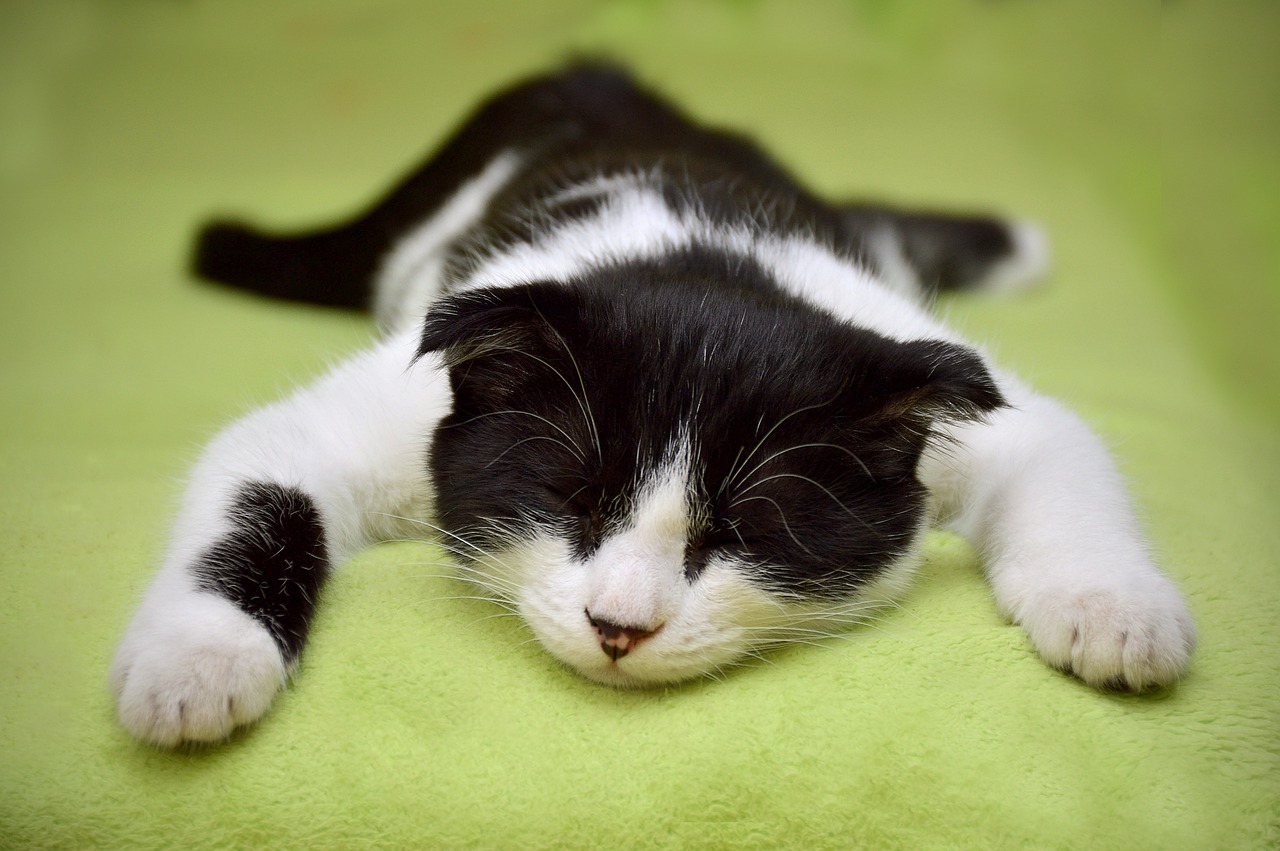
Health Considerations
When it comes to the health of Munchkin cats, there are several important factors to keep in mind. Just like any other breed, Munchkins can be susceptible to certain health issues, and understanding these can help you provide the best care possible for your furry friend. For starters, their unique physical structure, particularly their short legs, can lead to a few specific health concerns. It's crucial for potential owners to be aware of these conditions to ensure a long and happy life for their Munchkin.
One of the primary health considerations for Munchkin cats is their potential for genetic conditions. These can include problems such as lordosis, a condition where the spine curves excessively, and pectus excavatum, which is a deformity of the chest wall. Both of these conditions can affect the overall health and quality of life for your cat. Responsible breeding practices can help mitigate these risks, so it's essential to choose a reputable breeder who prioritizes the health of their cats. Additionally, regular veterinary check-ups are vital for early detection and management of any potential issues.
Another critical aspect of Munchkin health is their dietary needs. Like all cats, Munchkins require a balanced diet rich in nutrients. It's important to provide high-quality cat food that meets their specific dietary requirements. Munchkins can be prone to obesity, especially if they are less active due to their shorter legs. Therefore, monitoring their weight and ensuring they get enough exercise is essential. Engaging them in playtime with toys that stimulate their natural hunting instincts can help keep them fit and healthy.
Regular veterinary care is not just a recommendation; it's a necessity for Munchkin cats. Routine vaccinations, dental care, and health screenings are crucial to preventing diseases and maintaining overall health. For instance, dental disease is common in cats, and Munchkins are no exception. Regular dental check-ups and at-home dental care can prevent serious health issues down the line. Remember, an ounce of prevention is worth a pound of cure!
In summary, keeping a close eye on your Munchkin's health is vital. By being proactive about their care and understanding the unique health considerations associated with this breed, you can help ensure that your Munchkin leads a happy, healthy life. Don't hesitate to reach out to your veterinarian with any concerns or questions you may have; after all, they are your best resource when it comes to your pet's health.
- What are the common health issues in Munchkin cats?
Common issues include lordosis and pectus excavatum, as well as obesity if not properly managed. - How often should I take my Munchkin cat to the vet?
Regular check-ups at least once a year are recommended, but more frequent visits may be necessary for older cats or those with health concerns. - What should I feed my Munchkin cat?
Provide high-quality, balanced cat food that meets their nutritional needs, and monitor their weight to prevent obesity. - Are Munchkin cats prone to dental issues?
Yes, dental disease is common in cats, including Munchkins, so regular dental care is essential.
Genetic Conditions
Munchkin cats, with their adorable short legs and playful personalities, are a breed that captures the hearts of many. However, like all breeds, they come with their own set of that potential owners should be aware of. Understanding these conditions not only helps in making informed decisions but also ensures a healthier, happier life for these charming felines.
One of the primary concerns for Munchkin cats is their predisposition to certain genetic disorders. These can range from skeletal issues to other health complications that may arise due to their unique body structure. For instance, the gene responsible for their short legs can sometimes lead to a condition known as lordosis, which is an abnormal curvature of the spine. This can cause discomfort and mobility issues for the cat, making it essential for owners to monitor their pets closely.
Another condition that Munchkin cats may face is hip dysplasia. This is a genetic disorder where the hip joint doesn't fit into the hip socket properly, leading to arthritis and pain as the cat ages. Regular veterinary check-ups and maintaining a healthy weight can significantly reduce the risk of developing this condition. Furthermore, Munchkin cats can also be prone to cardiomyopathy, a heart condition that affects the heart muscle, making it harder for the heart to pump blood effectively. This condition can be hereditary, so it’s crucial to choose a reputable breeder who screens for such genetic issues.
To mitigate these risks, responsible breeding practices are vital. Breeders should conduct health screenings and genetic testing to ensure that they are not perpetuating these conditions within the breed. Potential owners should always ask about the health history of the kitten's parents and any testing that has been done. This proactive approach can help reduce the likelihood of inheriting serious health issues.
In addition to genetic conditions, Munchkin cats may also be susceptible to common feline health problems, such as obesity and dental issues. Therefore, regular veterinary visits are essential to monitor their overall health and catch any potential problems early. A well-balanced diet, combined with regular exercise, will not only keep them physically fit but also help in preventing many health complications.
In summary, while Munchkin cats are a delightful breed with plenty of personality, being aware of their genetic conditions is crucial for any potential owner. By choosing a responsible breeder and committing to regular veterinary care, you can ensure that your Munchkin cat lives a long, healthy, and happy life.
- What are the common genetic conditions in Munchkin cats? Munchkin cats may face conditions such as lordosis, hip dysplasia, and cardiomyopathy.
- How can I ensure my Munchkin cat stays healthy? Regular veterinary check-ups, a balanced diet, and responsible breeding practices are essential for maintaining health.
- Are Munchkin cats prone to obesity? Yes, like many breeds, they can be prone to obesity, so it's important to monitor their diet and exercise.
Regular Veterinary Care
When it comes to ensuring your Munchkin cat leads a happy and healthy life, is paramount. Just like humans, these adorable felines require routine check-ups to catch any potential health issues before they become serious. Imagine the peace of mind that comes with knowing your furry friend is in top shape, ready to leap around your home with that characteristic playful spirit!
During these veterinary visits, your Munchkin will undergo a thorough examination, which typically includes checking their weight, looking at their coat and skin condition, and listening to their heart and lungs. It’s during these appointments that your vet will also discuss important aspects of your cat's health, such as vaccinations, dental care, and parasite prevention. Did you know that dental health is often overlooked in cats? A healthy mouth can lead to a longer life, so don’t skip those dental check-ups!
Moreover, Munchkin cats are prone to certain health conditions due to their unique genetic makeup. This makes it even more critical to have a veterinarian who understands the breed. Regular check-ups can help identify issues like lordosis (a spinal condition) or hip dysplasia, which some Munchkin cats may be susceptible to. By being proactive, you can ensure that any genetic predispositions are managed effectively.
Here’s a quick overview of key veterinary care components for your Munchkin:
| Care Component | Frequency | Purpose |
|---|---|---|
| Annual Check-ups | Once a year | General health assessment and vaccinations |
| Dental Cleanings | Every 6-12 months | Prevent dental disease and maintain oral health |
| Vaccinations | As recommended by your vet | Prevent infectious diseases |
| Parasite Prevention | Monthly | Prevent fleas, ticks, and worms |
Additionally, your vet can provide guidance on nutrition tailored to your Munchkin's specific needs. Munchkin cats, with their playful nature, often require a balanced diet to maintain their energy levels while avoiding obesity, which can lead to further health complications. Your vet can recommend high-quality cat food that meets their dietary requirements.
In conclusion, regular veterinary care is not just a checkbox on your to-do list; it’s an essential part of being a responsible cat owner. By committing to routine check-ups, you’re not only helping your Munchkin cat live a longer, healthier life but also strengthening the bond you share. After all, a healthy cat is a happy cat, and your Munchkin deserves nothing less!
- How often should I take my Munchkin cat to the vet? It is recommended to take them for annual check-ups, but consult your vet for specific needs.
- What vaccinations does my Munchkin need? Common vaccinations include rabies, feline distemper, and feline leukemia, but your vet will provide a tailored vaccination schedule.
- Are Munchkin cats prone to specific health issues? Yes, they can be prone to certain genetic conditions like lordosis and hip dysplasia, so regular check-ups are vital.
- What can I do to maintain my cat's dental health? Regular dental cleanings and providing dental treats can help maintain your cat's oral health.
Frequently Asked Questions
-
What are the key physical traits of Munchkin cats?
Munchkin cats are famous for their short legs, which give them a distinctive appearance. They have a sleek body, and their coat can come in various colors and patterns. These adorable felines typically have a rounded head and large, expressive eyes that add to their charm.
-
Are Munchkin cats friendly with other pets?
Absolutely! Munchkin cats are known for their sociable and friendly nature. They often get along well with other pets, making them a great addition to multi-pet households. Their playful demeanor encourages interaction, so they thrive in environments where they can bond with both humans and other animals.
-
How much exercise do Munchkin cats need?
While Munchkin cats are not as active as some other breeds, they still require regular playtime to keep them physically and mentally stimulated. Engaging them with toys, climbing structures, or interactive games can help satisfy their playful nature and ensure they stay healthy.
-
What are the common health issues related to Munchkin cats?
Munchkin cats may be prone to certain genetic conditions, including lordosis and spinal problems. It's essential to work with a reputable breeder who conducts health screenings to minimize these risks. Regular veterinary check-ups are crucial for early detection and management of any potential health issues.
-
Do Munchkin cats require special grooming?
Grooming needs can vary based on the coat type of your Munchkin cat. Short-haired Munchkins typically require less grooming than long-haired ones. Regular brushing helps reduce shedding and matting, ensuring your feline friend looks and feels their best.
-
Can Munchkin cats learn tricks?
Yes! Munchkin cats are quite intelligent and can learn various tricks and commands. With positive reinforcement and patience, you can teach them to perform fun tasks, adding an extra layer of enjoyment to your interactions.
-
What is the average lifespan of a Munchkin cat?
On average, Munchkin cats live between 12 to 15 years, similar to many other cat breeds. With proper care, a balanced diet, and regular veterinary check-ups, they can enjoy a long, healthy life filled with love and companionship.




